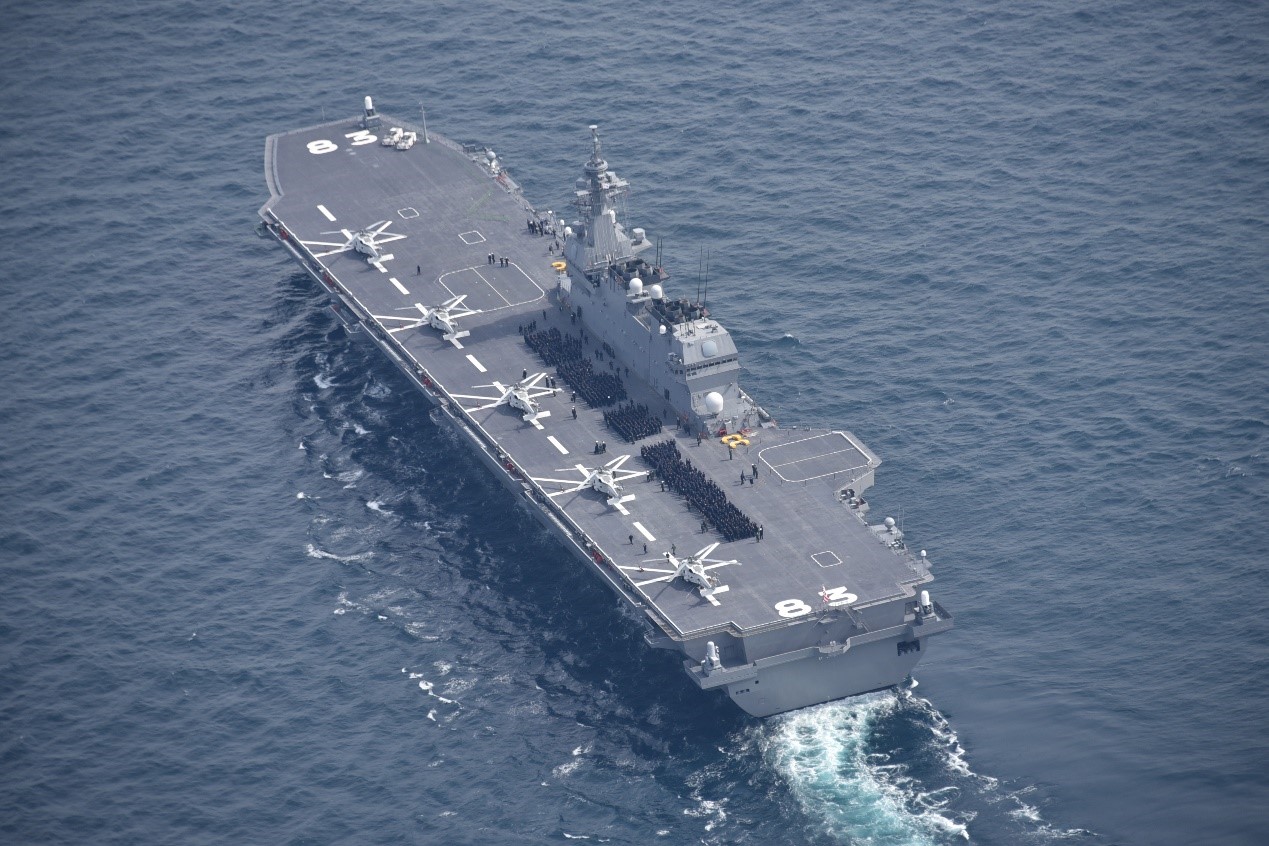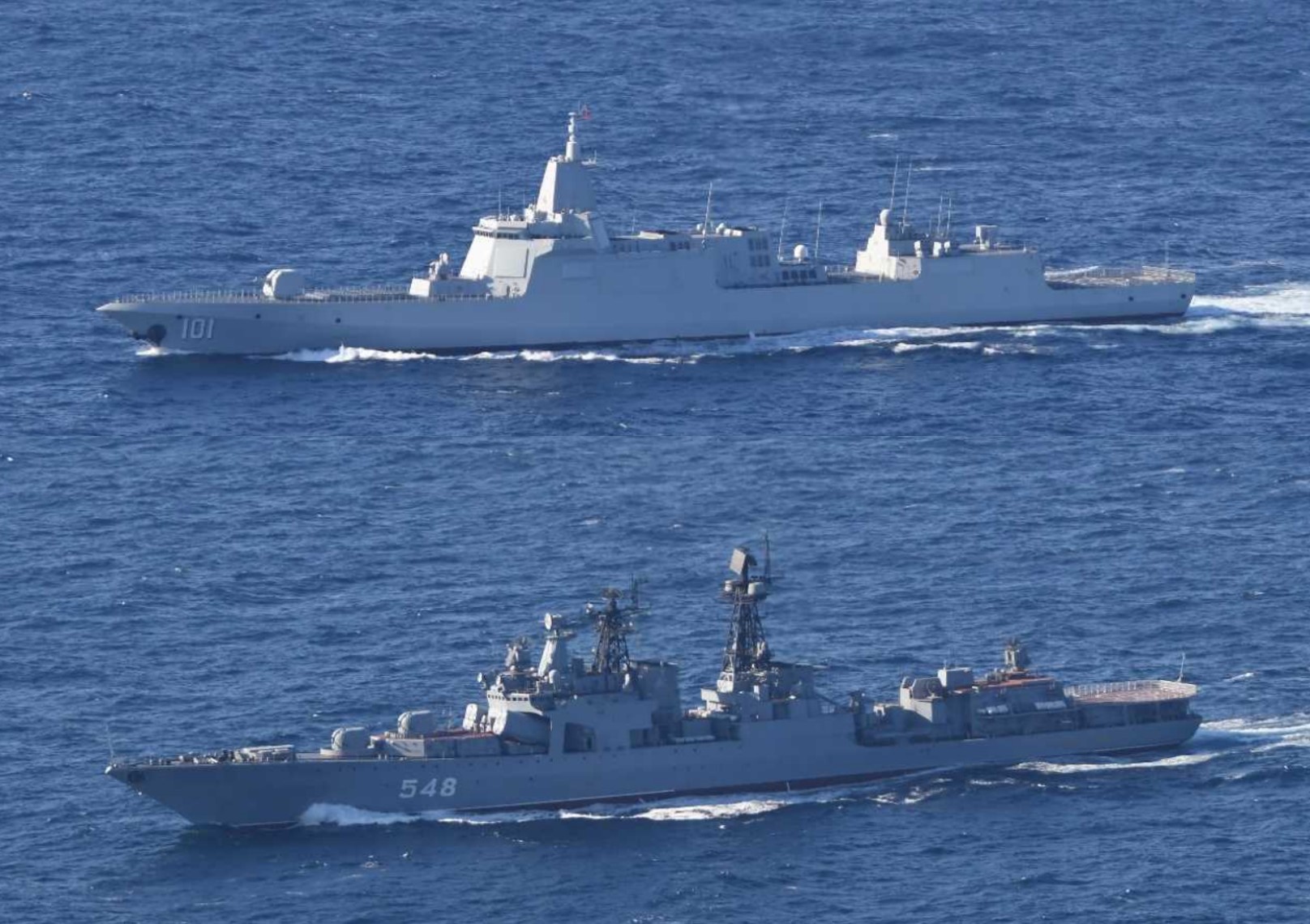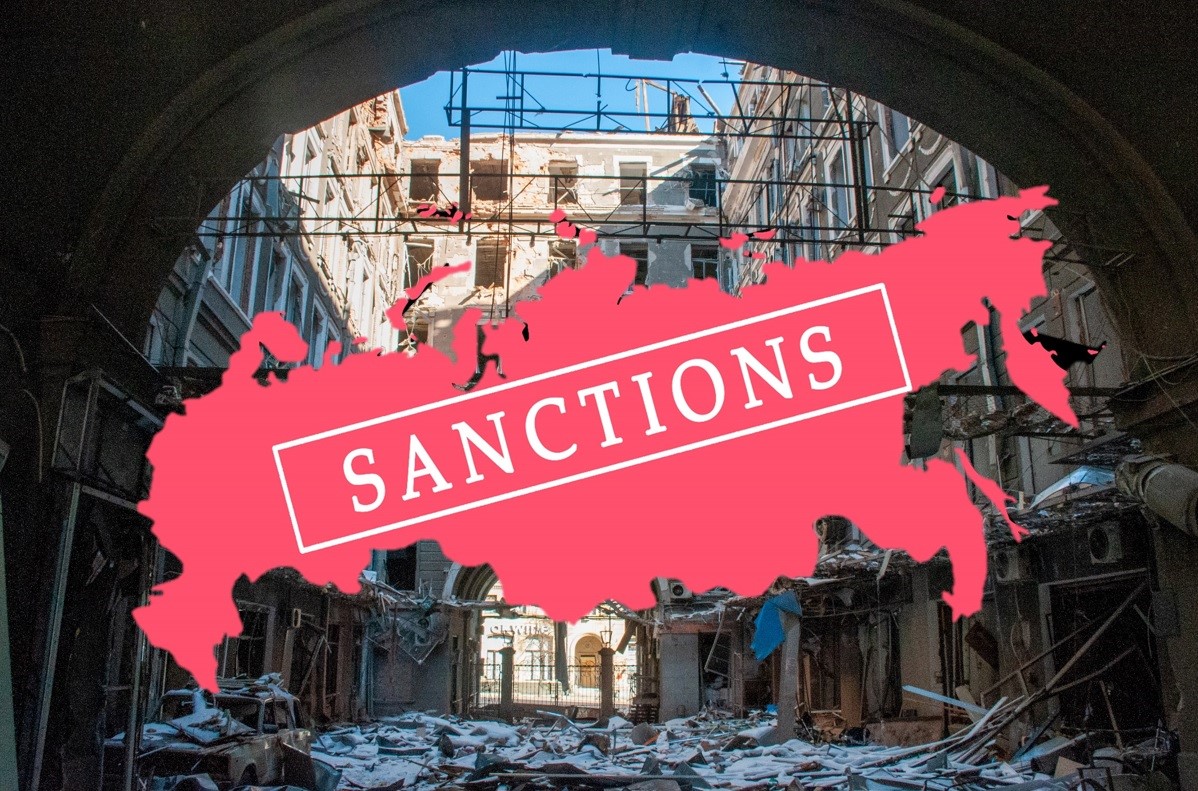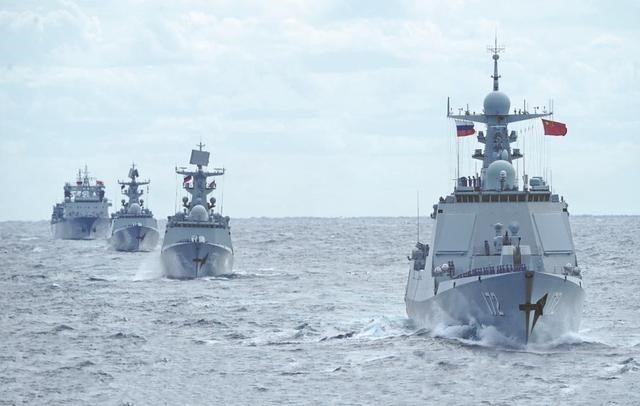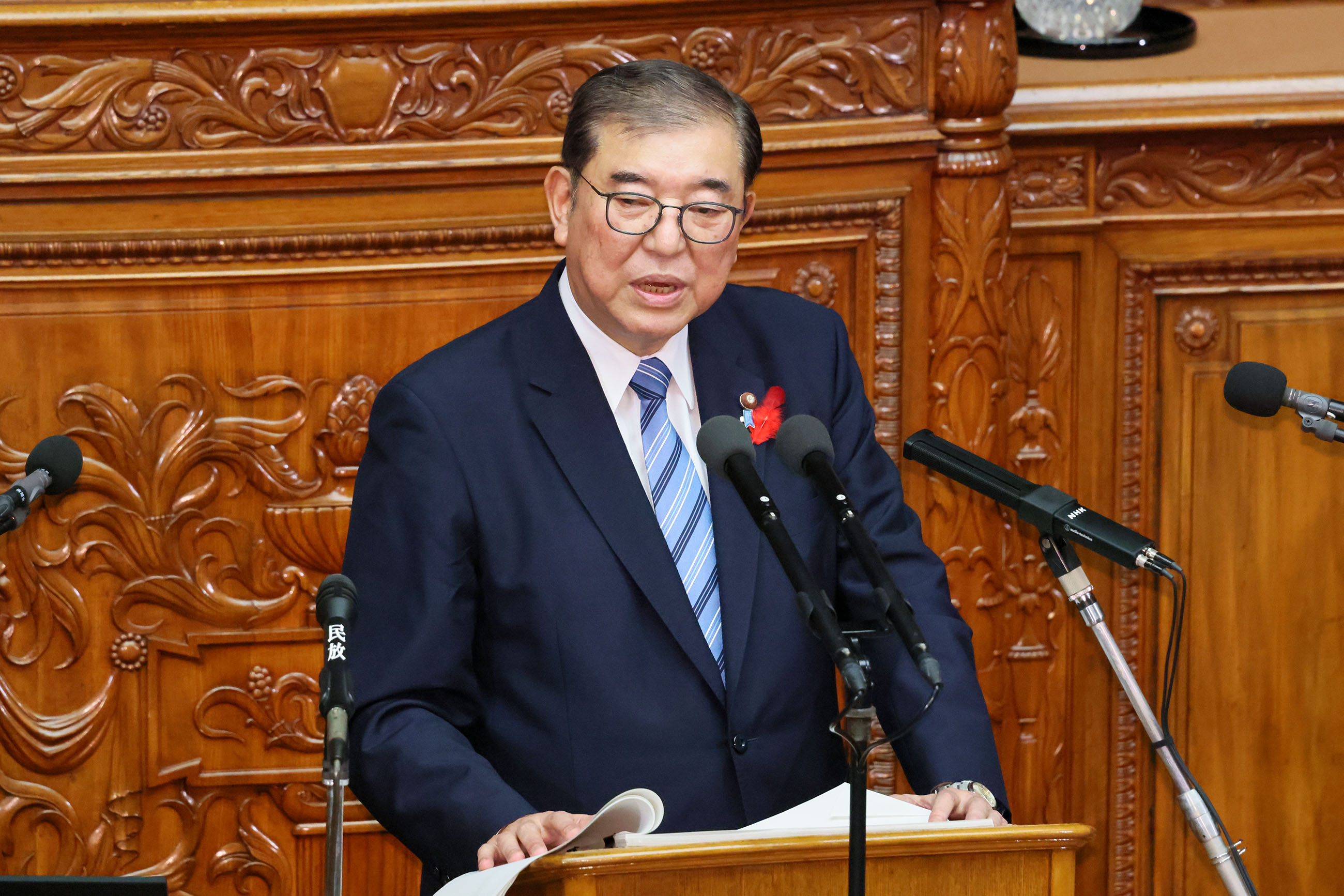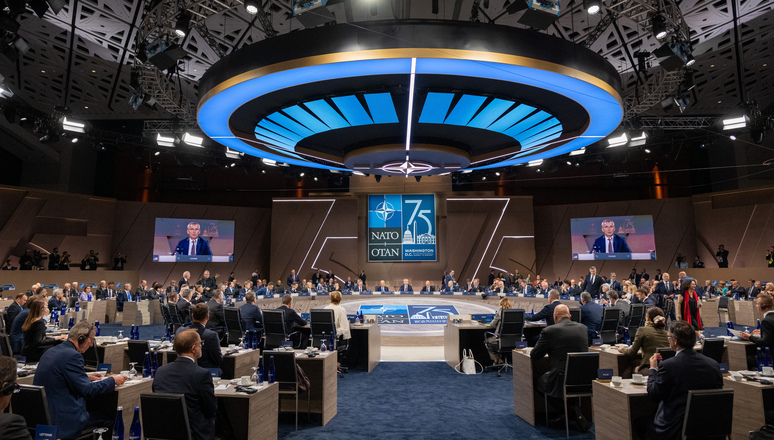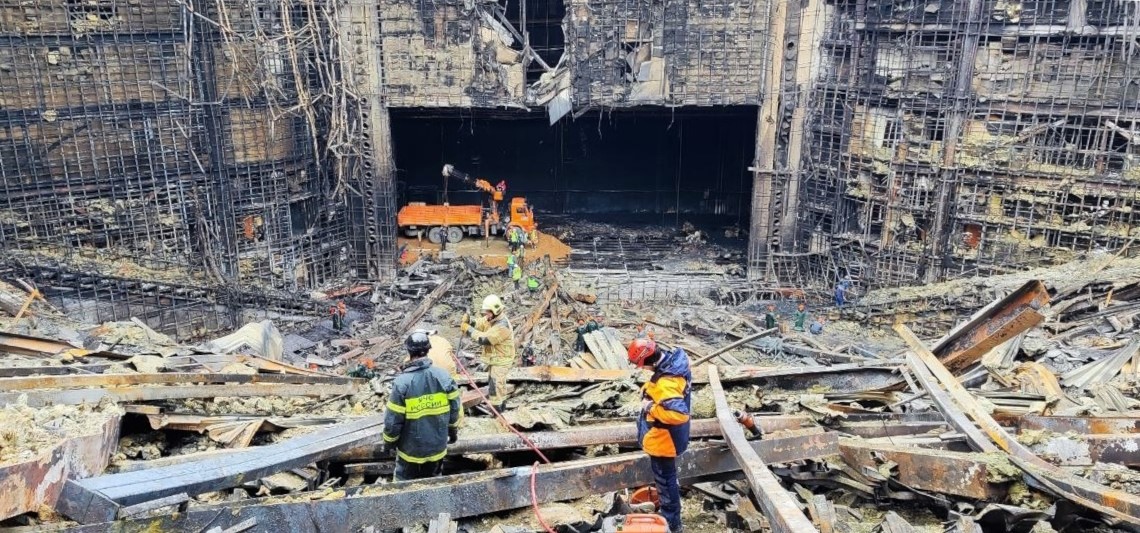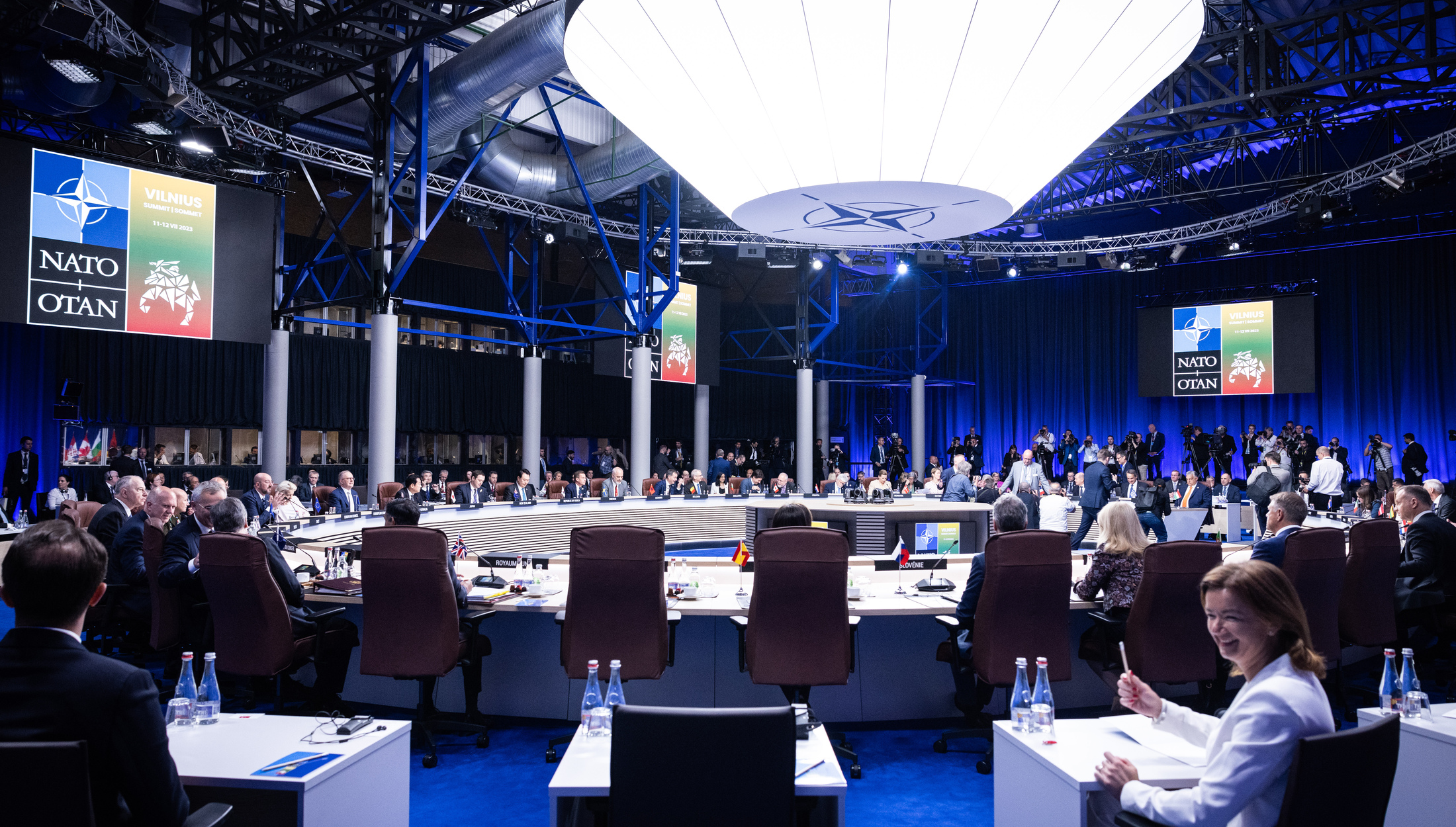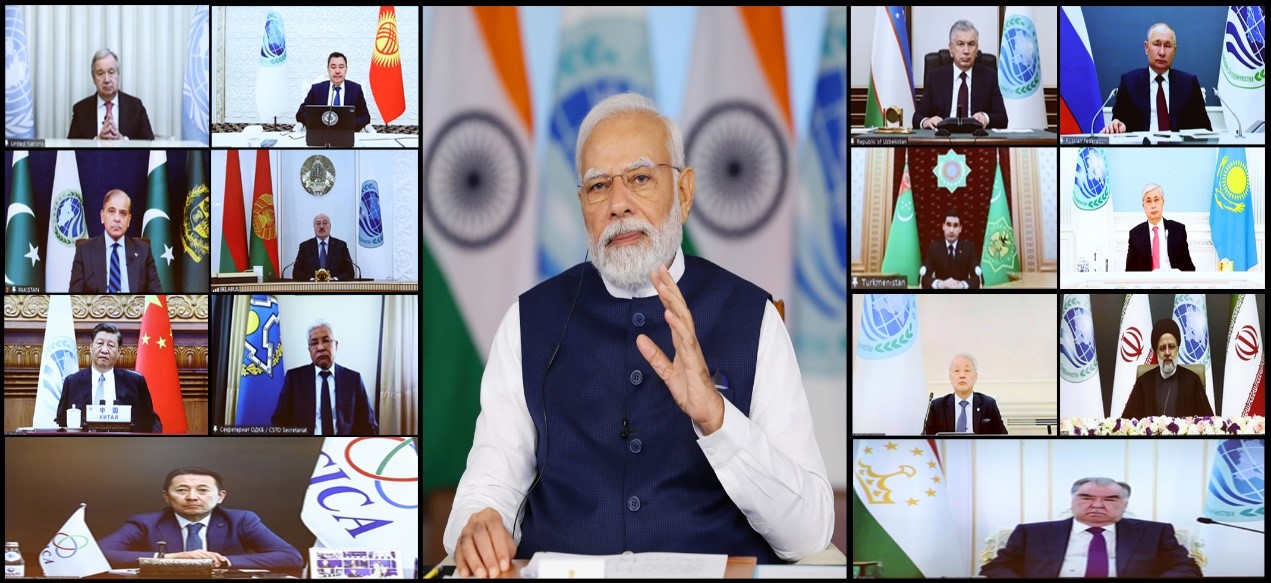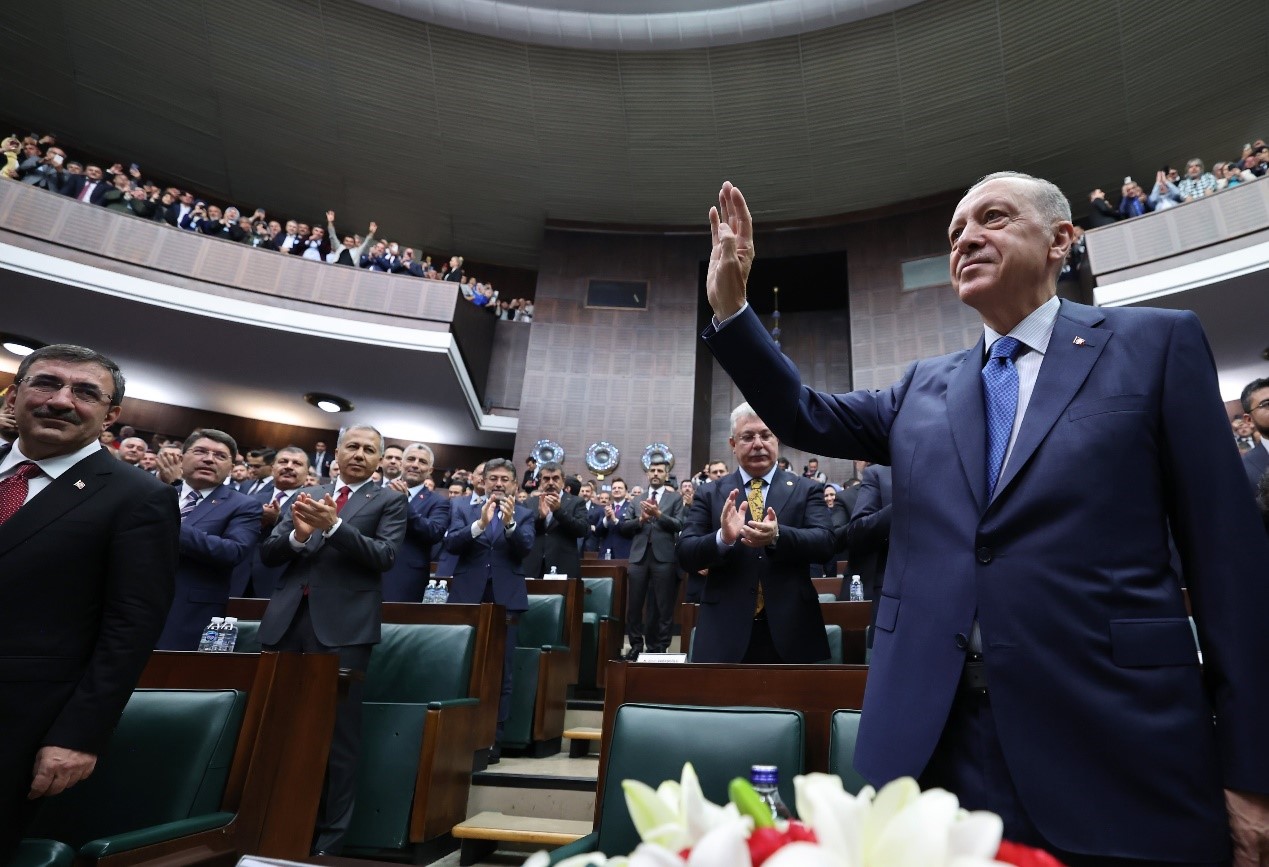Japan’s decade-long engagement policy with Russia, aiming at resolving the territorial dispute over the Northern Territories, has been abandoned to allow for the political condemnation of Russia’s aggression against Ukraine. The current geopolitical and security concerns add urgency to Japan’s transformation into a stronger geopolitical actor with a solid defense policy.
Picture source: Japan Maritime Self-Defense Force, May 28, 2017, Wikimedia Commons, https://commons.wikimedia.org/wiki/File:DDH-183_%E3%81%84%E3%81%9A%E3%82%82_(9).jpg.
Prospects & Perspectives 2022 No. 29
The War in Ukraine and Japan’s Shifting Strategic Policies
By Elli-Katharina Pohlkamp
May 24, 2022
Russia’s invasion of Ukraine has fundamentally threatened European security and the international order. The threat to global peace and stability as well as to energy/food security and supply chains has prompted political reactions and policy shifts not only in the West but in Indo-Pacific countries as well — including Japan. Japan’s decade-long engagement policy with Russia, aiming at resolving the territorial dispute over the Northern Territories, has been abandoned to allow for the political condemnation of Russia’s aggression against Ukraine. The current geopolitical and security concerns add urgency to Japan’s transformation into a stronger geopolitical actor with a solid defense policy.
Contrary to its reaction to Russia’s annexation of Crimea in 2014, Japan this time around did not hesitate to strongly condemn “the unilateral changes of the status quo by force” and aligned itself immediately with its western partners within the G7. It adopted a wide range of far-reaching economic sanctions and agreed to phase out its dependency on Russian energy. Moreover, Japan decided to welcome Ukrainian refugees, provided humanitarian aid and, for the first time, sent non-lethal military equipment to a country at war. In this context, Japan’s radical shift in its Russia policy has emerged as one of the toughest and fastest in the Indo-Pacific, and there is now widespread recognition in Tokyo that there is no prospect of achieving a territorial settlement with Russia in the near future, enabling the Kishida administration to demonstrate a shift in its foreign and security posture.
Threat perceptions
The unexpected war in Europe has compelled Japan to take an even more serious look at China’s behavior. The friendship between Moscow and Beijing and their February 4, 2022, commitment to work together and to alter the international order has forced Japan to reassess its regional threat perceptions and its overall foreign and defense capabilities.
China’s attempts to change the territorial status quo in the East and South China Seas as well as in the Taiwan Strait present an imminent threat to Japan. As Russia's unilateral attempt to change the status quo by force overlaps with China's aggressive moves in the South China Sea, Japan fears that if Russia's actions are tolerated, there could be spillover effects in its own neighborhood. The intensification of Sino-Russian military cooperation and joint exercises around Japan have been particularly worrisome to policymakers in Tokyo. Additionally, North Korea’s recent missiles launches, as well as China’s signature of a security pact with the Solomon Islands, which it is believed will allow China to send naval ships and troops to the South Pacific, have underlined the general perception of the Japanese public that threats posed by authoritarianism have only grown and that East Asian security is being directly challenged.
Defending the rules-based international order
Current tensions between rules and power are making Japan's longstanding efforts to defend the rule of law and political transparency, reflected in its Free and Open Indo-Pacific Vision (FOIP), all the more important. Concurrently, this gives Japan additional incentive to support the values of unity and promote deeper cooperation with like-minded partners to build resilience. Tokyo’s strategy is continuously evolving as conditions demand but is generally multi-layered, ranging from building a network of strategic partnerships beyond its traditional ally the United States as with the European Union (EU), the Association of Southeast Asian Nations (ASEAN), Australia and India, supporting infrastructure and connectivity and strengthening good governance to multilateral inclusive initiatives and mega trade deals. Notably, last month Japan made an extraordinary diplomatic effort to strengthen partnerships with the EU during the EU-Japan Summit and especially with ASEAN to bridge the gap between western nations opposing Russia and ASEAN countries taking a more hesitant approach.
Adapting to security developments
Japan had already gradually introduced changes in its security and defense policy prior to the war in Ukraine, but the current global situation has certainly boosted efforts to enhance its security capabilities and security partnerships.
Besides strengthening its engagement in the framework of the Quadrilateral Security Dialogue (QUAD), the Japanese government is going to introduce far-reaching changes in its foreign and security policy this year by revising the National Security Strategy (NSS). Given the profound changes in the global landscape since 2013, when the NSS was first formulated, wider-ranging modifications are to be expected, including deeper concern for new security domains such as space, cyberspace, and economic security and energy security.
Japan is also trying to establish a new strategic framework by expanding and diversifying its security relationships by signing the Reciprocal Access Agreement (RAA) with Australia in January. It is Japan’s second formal defense pact with another country besides its security ally the United States. Further, on May 5, Prime Minister Kishida and British Prime Minister Johnson also agreed in principle to a RAA and in April Japan started to negotiate a security information agreement with New Zealand, which would expand its options for intelligence-sharing.
Japan has also expanded its defense relationship with Southeast Asian countries. A May 2 agreement with Thailand enables mutual transfer of defense equipment and technology, deepening security cooperation. Japan already has such agreements with other ASEAN countries, including the Philippines, Vietnam, Malaysia and Indonesia. Given the deteriorating security environment in the Indo Pacific, communication and coordination with ASEAN countries has thus gained even more relevance for Japan.
Although the Ukraine war has sparked debates on security spending and capacity around the globe, Japan’s debate on building up its defenses, with the Liberal Democratic Party (LDP) proposing a goal of 2 percent of GDP up from the current 1 percent, has reached new impetus. Many Japanese government officials wonder whether the country has the capability to defend itself in the event of an attack. What used to be possible long-term issues or taboo topics, including obtaining a strike capability, Constitutional revision or the possibility of “nuclear sharing” as suggested by former Prime Minister Abe, has gained traction and caused the imminent need for an honest and bold debate about Japan’s future security policy.
Prompted by the war in Ukraine, Prime Minister Kishida has taken foreign and security policy changes to the next level, demonstrating political leadership and leading a range of agreements. The geopolitical circumstances have helped Japan become an indispensable partner for the West in the Indo Pacific and strengthened claims of the importance of Europe and the United States to not lose sight of the Indo-Pacific and China's aspirations. With its support for Europe and engagement within the G7, but also as a mediator between ASEAN countries and the West, Japan shows that it is a reliable global actor and alliance partner. The international response to Russia is also an indicator of whether democracies can align against a potential territorial takeover by China. This gives Tokyo’s strategic networking, balancing and alliance building approach a whole new meaning.
Finally, the war has highlighted the risks that come with economic dependence on authoritarian countries. Considering the implications for economic and energy dependencies across the globe, radical changes in a longstanding Russia policy were a meaningful step for Japan to take. A critical evaluation of Japan’s overall China policy might also soon become necessary.
(Elli-Katharina Pohlkamp is Visiting Fellow, European Council on Foreign Relations.)


